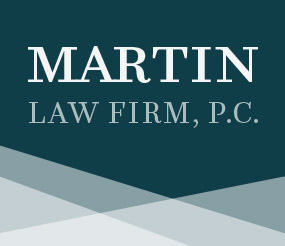Once it’s summertime in Pennsylvania, it’s not uncommon for those in the business world to experience various lags and interruptions as many people take time off from work for vacation. This can result in customers falling behind or even completely ignoring their payment obligations.
An unfortunate problem many business owners in PA run into is how to effectively protect themselves and their businesses from customers who purposefully do not pay for goods or services. The debt collections process can be time-consuming, and there is no guarantee the debt will ever be collected. Business owners typically do not understand the vital role a professional PA debt collections attorney can play in collecting unpaid commercial debts due to the legal challenges to obtain a judgment and the process for enforcing the judgment against a debtor.
The best thing a business can do is implement policies that, if followed, will help decrease the number of unpaid accounts and make the business debt collections process easier. The following are a few good suggestions from an experienced PA debt collections attorney at The Martin Law Firm to assist business owners with avoiding unpaid accounts and collecting unpaid debts.
- Establish Payment Policies – In order to run an effective business, business owners first must create a sound business infrastructure. Policies and procedures must be established from the beginning that address all aspects of the business and that specifically concern the collection of payments from customers. A billing procedure should be put in place that includes regular invoicing of customers, a timely follow up after 30 days of overdue payment, and an established process for handling delinquent accounts over 90 days past due, which should include contacting a PA debt collections attorney. Having these policies in place will make it clear to customers when invoices are to be sent, when payment is expected, and the consequences/procedures for nonpayment. Equally important is to have these policies in writing, as this can help avoid unpleasant situations if there is confusion between business and customer. This may also ultimately protect business owners and the business itself from lengthy litigation.
- Keep Accurate Records – All businesses should keep accurate records of cash flow, expenses, and customer orders not only for tax purposes and to track the success of the business, but to protect the business from customers claiming non-receipt of goods and/or services. The debt collections process may come to a grinding halt if a business owner claims a debt is owed, but cannot provide any evidence to support it, such as customer orders, receipts, shipping confirmations, or signed packing slips.
- Use Written Contracts – Without a written contract, businesses and customers are essentially left with an oral agreement, the terms of which may be difficult to enforce. A business contract should always be in writing and should specifically describe the services or products being offered, the price, and the payment terms (cash/checks/credit cards/etc., date payment is due, late payment terms, and terms if customer defaults on payment). Good written contracts are the best defense when a customer does not pay and should be drafted by an experienced PA debt collections attorney. An attorney can incorporate contract terms to help the business, such as a “Forum Selection Clause” which can force litigation in the business’ location and not the Court where the debtor is located. Another useful provision can be inserted which would require the debtor to reimburse the business for collection costs, including attorney fees and court costs. Finally, an attorney can help prepare an addendum to the contract that requires the business customer to have an owner, for example, personally guaranty performance under the contract. This allows debt collection proceedings to be brought against the individual who personally guaranteed payment in addition to the business debtor.
- Hire a Qualified PA Debt Collections Attorney – If the debt remains unpaid, a debt collections attorney should be retained. A debt collections attorney can send a formal demand letter to the debtor which is not only meant to restate the debt owed and that payment is still expected, but to communicate the seriousness of the matter and that further action (such as late fees or a lawsuit) will be taken. When an attorney is involved, debtors often fear that litigation is forthcoming, which causes them to make payment or negotiate a payment plan. Ultimately, a PA debt collections attorney can file a lawsuit and obtain a judgment against the debtor. When this occurs, the debt collections attorney can enforce the judgment by having a lien placed on a house, levying and garnishing bank accounts, or seizing cars or other personal property.
PA Debt Collections Attorneys
The reality is that businesses survive or fail based on their ability to avoid uncollectible accounts or collect on those accounts through proper planning and the use of a skilled PA debt collections attorney. The collections process can be tiring and frustrating when handled alone. Contact an experienced PA debt collections attorney at The Martin Law Firm at 215-646-3980 to discuss implementing policies at your business or to assist in collecting unpaid debts.
Free Debt Collection Guide for Business Owners
The challenge of handling late-paying or non-paying customers is one of the most frustrating issues you can encounter as a business owner. Download our free Debt Collection Guide for Business Owners to learn useful and practical tips to implement in your business to see improvement in your commercial debt collection process.
